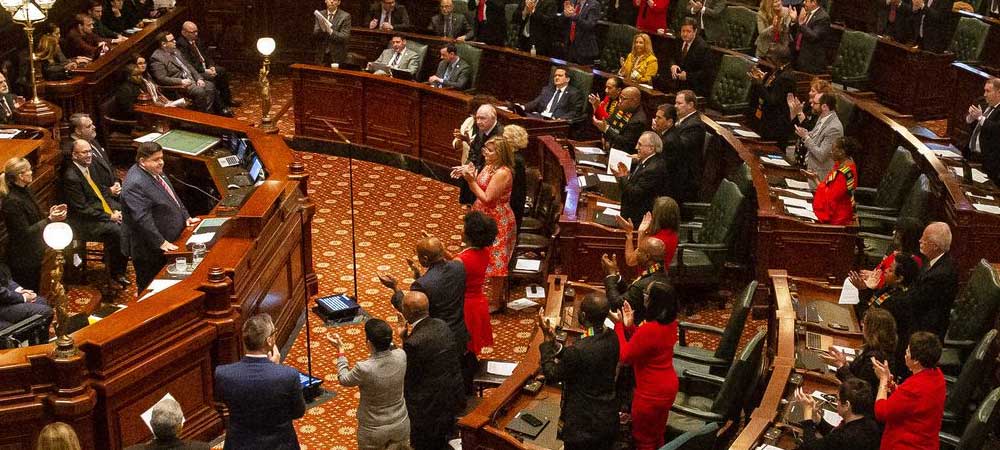- Illinois Governor J.B. Pritzker has already included sports betting as part of his budget proposal, which he announced on February 20, 2019.
- Some of the Illinois sports betting models are based on the ones from other states with legal sports wagering such as New Jersey, Mississippi, and Rhode Island.
- Hearings for sports betting in Illinois will continue later this month, the legislative session will end May 31.
SPRINGFIELD, Ill – There is no doubt that sports betting in Illinois is expected to be quite profitable. Last Thursday, Illinois lawmakers underwent a three-hour long hearing in order to understand just how profitable it can be and how shares of the activity would be divided.
The hearing was held within the House Revenue and Finance Committee and the bill that was discussed was IL HB 3308, which is sponsored by Michael J. Zalewski.
Among the committee members were also representatives of interested parties including those involved in Illinois casinos, professional sports leagues, video lottery terminals, and horse racing tracks across the state.
The approaches to legalizing sports betting came in the form of four possible amendments to Zalewski’s bill. Each one takes a unique approach and with each option, there are winners and losers in the sports betting industry.
The first possibility is the New Jersey model. The state would set a $10 million-dollar initial fee to brick-and-mortar locations such as riverboats, horse racing tracks, and casinos. They would have to pay $250,000 each year to renew their license.
On top of those fees, they would be allowed two skins for mobile wagering companies to partner with them. Mobile and online wagering would cost $1 million dollars initially $500,000 every five years. The tax rate would be 15% for land-based betting and 20% for mobile.
The Mississippi model is much the same with two key difference. Under the Mississippi model, mobile sports betting in Illinois would be limited to on-site locations and the apps would be geo-fenced to the locations of license holders such as racetracks.
This model also features a 20% royalty on the handle to be given to the professional sports leagues that sports bettors in Illinois wager on. This fee is taken more rigorously in the third approach.
Under the professional sports league’s amendment, there would 25% royalty on the handle along with limiting sports betting to take place at the professional sports venues within the state of Illinois.
The last approach would be more geared towards the Rhode Island model which puts the Illinois Lottery in charge of regulating and operating sports gambling and sets a 50% tax on sports wagering revenue. This approach would give the lottery total control of the industry.
After the hearing committee members could agree on the initial 10-million-dollar fee set by Illinois Governor J.B. Pritzker. However, they still remained weary on the idea of mobile or online sports wagering as well as paying a fee to sports leagues.
No final decisions on the bill for sports betting in Illinois were made last week. Instead, it was referred to the Rules Committee for review. The bill is set to be heard by them later this month, where Zaleski and other interested sports betting parties are hoping to gain clarity into the state’s direction.

